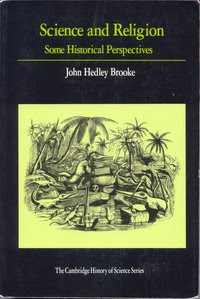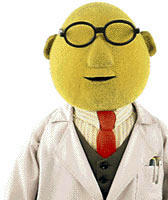
Chapter 6: The Fortunes and Functions of Natural Theology
“The object of the chapter is to uncover some of the reasons why this integration of science and religion proved so viable, despite the existence of trenchant critiques. We shall also consider the extent to which a commitment to natural theology affected the scientific enterprise and the extent to which advances in science affected the plausibility of arguments from design. ” (p. 15)
“The idea that divine wisdom could be discerned in nature was attractive in different ways, both to Christian apologists and to deists. Christians found the argument useful in their dialogues with unbelief. It seemed to offer independent proof of a God who they believed had also revealed Himself in the person of Christ. On the other hand, Deists also had reasons for promoting the design argument. The more that could be knwn of God through rational inference the less perhaps it was necessary to refer to revelation at all” (p. 193)
“For Calvin, any knowledge of God inferred from nature would be distorted, the defective product of a dimmed and fallen intellect. The image could only be rectified by reading nature through the spectacles of Scripture” (p. 195)
“Natural theology flourished in England not because of a peculiar English mentality but because there were social and political circumstances that gave the English Enlightenment a distinctive character” (p. 200)
“… according to Kant, was that no matter how much wise artistry might be displayed in the world, it could never demonstrate the moral wisdom that had to be predicated of God” (p. 205)
“On one level, natural theology was not so much destroyed by science as eased out of scientific culture by a growing irrelevance.” (p. 219)
“Whewell continued to argue that the best explanation for the mind’s capacity to discover scientific truth was that it had been designed for the purpose. As priest and preacher, however he stressed that the way back to God was not through rational considerations. For one thing, that would leave God out of the conversion process; for another it would take insufficient account of the fact that design arguments were really only compelling to those that already believed.” (p. 224)
Chapter 7: Visions of the Past: Religious Belief and the Historical Sciences
“The assumptions made in reconstructing the past were often highly controversial even among naturalists themselves. We shall therefore stress the competition between rival scenarios, in which the political and religious preferences sometimes constituted a hidden agenda. Although there were countless attempts to harmonize these disturbing vistas with biblical texts, they were eventually abandoned – at least among academic theologians – as the methods of historical research were brought to bear on questions of biblical authorship” (p. 14)
“With the emergence of more sophisticated historical scholarship, particularly in Germany, it had already become clear to many Christian intellectuals that adherence to the literal inerrancy of Scripture was no way to present the credentials of Christianity to the modern world.” (p. 231)
“The science of history had created a watershed. One set of presuppositions took one toward a more human, but historically elusive Christ. The other – more traditional – allowed the retention of the Christ of faith, but at the cost of severing ones ties with what Strauss called “our modern world”” (p. 270)








